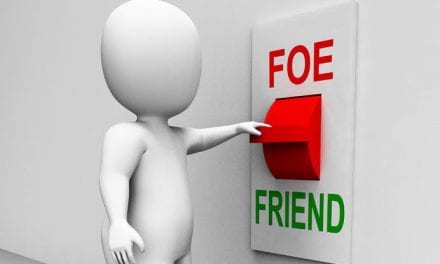Do your employees make an impact? Do you?
By Steve Moran
A few days ago, I published part of on an interview with David Gehm, CEO of Wellspring Lutheran Services in Michigan titled “When Employees Don’t Care.”
While accountability is a hugely important part of the equation, it is not the thing that creates passionate team members.
In this concluding article Dave talks about how they are organically and simply creating deep passion for the mission of their organization.
Creating Wellspring Moments
Dave acknowledges the challenge in truly getting people to want to do their best, rather than just trying to avoid another fierce conversation. “Most people want to feel they are part of something bigger, that it’s more than just getting the meals out of the dining room in time or getting X number of rooms cleaned,” he says. “It’s about instilling in them the feeling that ‘you’re making an impact in the lives of people.’”
With that goal in mind, Dave and his team developed the Wellspring Moments program. Here’s how it works. At the beginning of every meeting, whether it’s a corporate team meeting or a stand-up for a group of housekeepers, the question is asked, “Who can share a Wellspring Moment?”
Then come the individual observations, such as “I saw Sally do this” or “I was walking down the hall the other day and I saw Joe step in and do this.” And, according to Dave, there is never a shortage of folks wanting to share something. It celebrates, it recognizes, and it reinforces. Then they move on with the meeting.
The Key Element
The key is taking abstract concepts, such as “good communication,” and breaking it down into things that can be measured; making eye contact, smiling, using first names, asking permission to use names, all of those things that go into good interpersonal communication.
Dave explains, “So during a Wellspring Moment someone may say ‘I saw Sally talking to a family member who was upset. She was making great eye contact and she diffused the whole situation.’ That’s the kind of reinforcement we’re looking for. Specifics.” It’s not rocket science. But it helps cut across the artificial boundaries and cultural lines within organizations because it’s clear and straightforward. And it creates a common thread that pulls people together around the common mission.
What Dave has been very careful to avoid with his team is giving the impression that the Wellspring Moments program is just the “next new thing.” There’s a lot of skepticism out there. “What we’re doing is taking the current training sessions, the current meetings, and slowly infiltrating them with these conversations,” he explains. “The less fanfare, the better.”
Of course when you introduce a concept through a more organic process, while it’s more natural, it tends to take more time.
Dave acknowledges that the process is slower but believes that it will become more deeply embedded into the culture. “We have been careful to say to folks, this is not an addition, it’s just a different approach to what you are already doing,” he says.
And so far, the Wellspring Moment seems to be well received. It’s not 100 percent embedded throughout the many areas of Wellspring, but, according to Dave, they are making headway. With a turnover of about 35% (already low by many standards), Wellspring is hoping that improving the culture will help reduce turnover, especially during the first 6-9 months of employment, where they experience their highest percentage of turnover.
Will It Succeed?
“Admittedly we are at the beginning stages of this. I wish I could tell you that I have absolute assurance that Wellspring Moments are occurring 100 percent of the time at every meeting, but that’s our goal and that’s what we’re heading towards,” says Dave.
It will be interesting to see the results. Since the program was implemented just this last quarter, Dave doesn’t anticipate any definitive data for another 9-12 months.
But they seem to be off to a good start. One can’t help but be reminded of organizations like Starbucks and Zappos who do a really good job of making their employees feel they are part of something bigger; creating that emotional hook that says “you’re family.”
Kudos to Wellspring in their efforts to build a stronger, more naturally accountable culture in senior care. We can certainly use it.
You can listen to the entire interview below.








